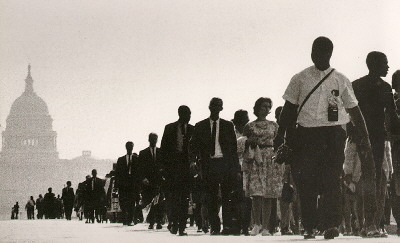
Multiple-Choice Questions.
To assess your knowledge and skills in government and politics answer these sample multiple-choice questions. Here are some table comparison questions on civil rights and civil liberties. The correct answers will appear below the questions.
3. The 1964 Civil Rights Act prevented discrimination on the basis of several criteria, including which of the following?
(A) Religion
(B) Age
(C) Socio-economic status
(D) Physical disability
And the answers are . . .
A
What could you examine or review to enhance your chances of answering similar questions correctly?